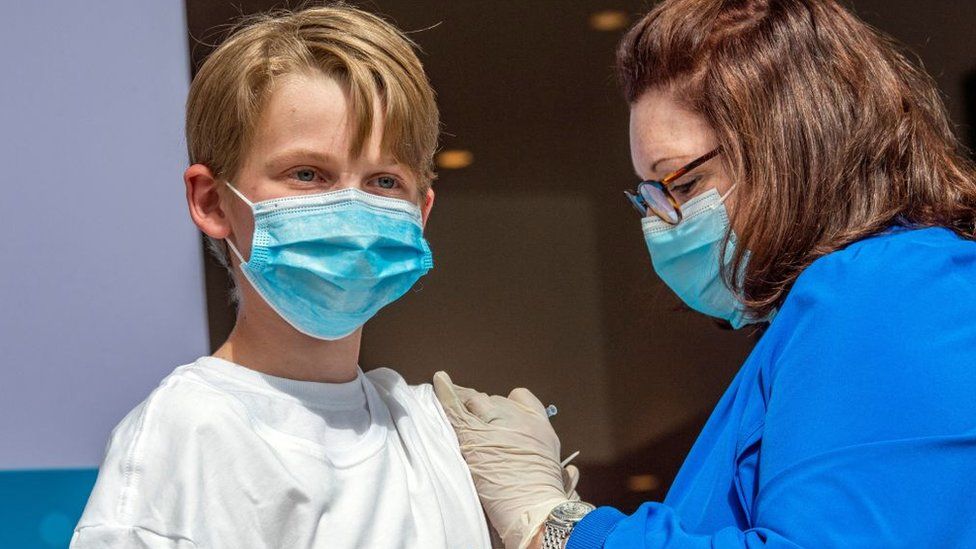
Experts have recommended that a limited group of children should be offered Covid jabs to protect them against the pandemic ahead of winter, Vaccines Minister Nadhim Zahawi has said.
He told BBC Breakfast it included children who were almost 18, vulnerable to Covid or who lived with people who were clinically vulnerable.
But whether to jab healthy children aged 12-17 will be “kept under review”.
Mr Zahawi will make a statement to Parliament later today.
He said the Joint Committee on Vaccination and Immunisation (JCVI) – the group of UK vaccine experts which advises the government – had given the recommendations to ministers, who would consider them on Monday morning.
“We have always taken the advice of the JCVI,” Mr Zahawi told BBC Radio 4’s Today programme. “It has done us well, and we will take their advice on board.”
Current advice is that 16 to 18-year-olds can be offered a Pfizer jab if they are in a priority group, or live with someone who has a weakened immune system.
If accepted, the new recommendations would extend eligibility to healthy teenagers who are within three months of their 18th birthday, as well as younger vulnerable children and those living with vulnerable adults.

Do you have any questions about masks, rule changes and vaccinations?
- Send your questions to yourquestions@bbc.co.uk
- WhatsApp us at +44 7756 165803
- Tweet us @BBC_HaveYourSay
- Please read our terms & conditions and privacy policy

Mr Zahawi said there was “good data from America” on giving a first dose to healthy children, but there was a gap until those same children got their second dose, so the JCVI was keeping the issue under review.
He said there was concern about very rare cases of myocarditis, an inflammation of the heart muscle that has been seen in younger people.

- LOOK-UP TOOL: How many cases in your area?
- LOCKDOWN RULES: What are they and when will they end?
- VACCINE: When will I get the jab?

The World Health Organisation said cases were more common in young men than women, and typically occurred within a few days of the second dose.
But it said the illness was usually mild and could be treated with rest and non-steroidal anti-inflammatory drugs. Patients are being followed up to determine the long-term outcomes, the WHO says.
The Pfizer vaccine is licensed to use in people aged 12 and above.


- BEING BRITISH BANGLADESHI: Ali Shahalom, or Ali Official, explores what it’s like to be British-Bangladeshi in the UK
- THE SHOCKING FALL OF A SUPER-INFLUENCER: The influencer who claimed she had cancer

